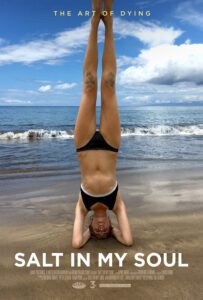
Bottom Line: The Power in Telling Your Own Story
Director: Will Battersby
Run time: 1 hour 36 Minutes
Genre: Feature Documentary
Country: USA
Finding the Balance of Living in the Moment and Preparing For a Future
Will Battersby brings Mallory Smith's challenges and triumphs to the screen in 'SALT IN MY SOUL: An Unfinished Life', based on her book with the same name.
I had to the opportunity to talk with Will Battersby and Mallory's mother, Diane Smith to discuss the documentary 'SALT IN MY SOUL: An Unfinished Life' based on the book of the same name.
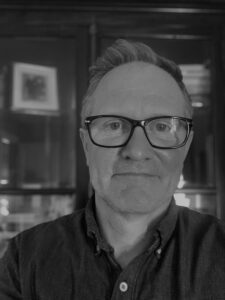
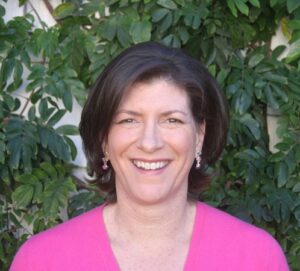
YRN: Will, what did you do to prepare for this film?
WILL: Obviously I read Mallory's book. I read it a few times. I used that as a guide for myself as to who I wanted to interview.
I had several conversations with Diane, that were to make sure Diane and Mark were comfortable letting me make the film.
She is a very fierce gate keeper, quite rightly so. We had a lot of early conversations about who would be willing to be interviewed and who would not.
She put me in touch with a lot of people. I had early conversations with most of the interview subjects, just to get a sense from them about what they would be comfortable talking about and what they would not be. And to determine if they would be good interview subjects or not.
There is a big difference from Mallory writing about Mallory. She is a gifted writer that would make anyone sound good. I did a certain amount of research of cystic fibrosis, the history of it, what it is.
And then, I very much come at documentaries as a journey of discovery, as well. Then it was about jumping in and trusting the journey but take the most interesting path.
YRN: Was that different from preparation for your other documentaries?
WILL: It was. I worked on Alex Gibney's film, my first documentary, I was the head of development, "Enron, the Smartest Guy in the Room." About the Enron scandal. That was extraordinary, well planned, almost scripted. Even though they did not script the interviews. They knew before going into it almost every cut in that film, because they knew exactly what that story was.
That is sort of the approach I took in early documentaries that I produced, it was to really try and be as scripted as possible going in, because you knew what the story was and this was very different in away, because the story was important and the detail of the story were important, but I realized early on this was going to be more of a cinematic documentary. Much more character based and about the emotions of this journey and allowing the audience into Mallory's journey.
The big thing I wanted to do was to have Mallory function as the narrator even though we are not coy about what happens to her. We put it in the front of the film, she passes away. I did not want to play with people's emotions about whether she was going to live or not. I felt that it would cheap, but I wanted her as narrator.
She had passed away before we started making the film. It was a little bit more of a journey of discovery with a very clear creative intention behind it.
So, it was very different from everything I had worked on until that point, was very messagey. Messages I believe in, very political. I worked on a film about blacklisted screenwriters in the 1950s and always beating a drum.
One of the things I did differently in this film was to not beat drums. We could have gone after insurance companies, big pharma but it would not have done justice to Mallory. I am really pleased we didn't because one of the things we are seeing in reaction to the film is, by keeping it very personal, very emotional, very focused on the family.
It is all the big themes. All of our lives throw off big themes, if you actually think about what you go through on a daily basis. Mallory threw off huge themes because of going through all the medical stuff. She was going through all the mental health stuff, the physical illness plus she was growing up. So, there are all the themes and her becoming a woman.
So, I think by really focusing on character and story, we have allowed the audience to see all those themes. They are all there, but you can bring yourself into it, in a way. It was very different for me, but I really enjoyed it.

YRN: Diane, what did you do to prepare for this film?
DIANE: I grilled Will, I prodded Will. I challenged Will. I asked him a hundred times, what are you making the film about? What are we doing here? What are you focused on? What is the message? How are we going to do it.
As Will said, "this film could have been cut in any number of ways." It could have delivered hard hitting messages. It could have gone after people. It could have focused and taken a deep dive in one area.
There was so much material and so many things Mallory cared about and what is interesting to me is that there is a book, now there's a documentary and there is a talk I have given across the country 200 times and still there is a lot of material that has not been shared publicly and that's just because there was so much.
So, I think, that is the way I prepared. It was to make sure that the man we entrusted Mallory's story to was up to the job and
he had to prove that to me over a period of time, which he did, of course. It's amazing.
YRN: Diane, what was it like working with Mallory's writings, audio and videos?
DIANE: It was wonderful to have everything because it allows me to keep Mallory alive. I get to look at her pictures and read her words and hear her audio. It is quite remarkable, but the truth is, I keep going back to the film because Will has done a wonderful job of crafting a picture of her life in film and I just want to keep going back to it over and over.

YRN: Will, what was it like working with Mallory's writings, audio and videos?
WILL: It was a bit of a dream for me as documentarian. I read the book and that was the inspiration for me wanting to make the film.
Then discovering there was this treasure trove of her writings, her firsthand point of view but then the hours of audio she recorded, her telecasts she recorded for her own use, video she recorded and social media.
Having Diane, whose her nickname was 'Mommarazzi', she documented every aspect of Mallory and Micah's life. We had an extraordinary treasure trove of home videos. It was great for me.
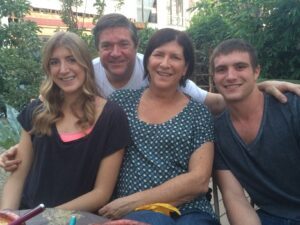
YRN: Diane, it appears Mallory got the best of both parents, Mark more reserve, happy with researching vital information and Diane, outgoing with no problem fundraising and speaking up and out. How do you think she achieve a good balance?
DIANE: Well, it is interesting because we have done a lot of interviews and talked to a lot of people, and nobody has made that perceptive comment. That is a very perspective observation that she does have a lot of Mark and a lot of me. Probably the better parts of us. She did not inherit the worse of us. It made her life more interesting to relate to us in different ways.
Whenever it was homework or anything
intellectual, it was Mark. When it was social or medical, appointments, the business of living and fundraising, that was always me. There was a division of labor and a division of intellectual content.
Mallory instinctively and intuitively understood how to take the best from people and ignore the worse. Actually, I think that was why she was so beloved by her friends and had so many friends. It is why professors and doctors loved her because she didn't focus on people's short comings or failings. She focused on people's positive quality. I think that is why she was so happy, even with all of her struggles.
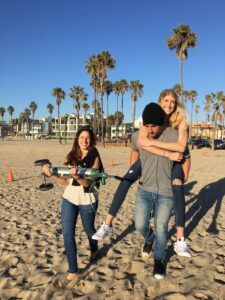
YRN: Diane, Mallory cared deeply about you and Mark and how you both would do after her passing, how are you, Mark and Micah doing?
DIANE: I would say, we are all forever altered. I will speak for myself, there is a hole in my heart, that is hard to describe if you don't have it there. It's just hard to describe. It doesn't mean you can't have moments of joy. Somebody in my grief group describe it and I think it was a really apt description and so I am going to share it. She said, 'there is a ceiling on your joy, no matter how great something is, you just can't go past it because your girl is not there but by the same token, when things happen, I really don't go that low because nothing compares to losing a child.
I might appear upset at times or I will call Will and argue with him but something. Generally, in my core, I don't' really sweat the small stuff anymore. I really don't let things bother me, I could get a traffic ticket, in the old days I would be super upset and now I'm like ok, well, I guess we will be supporting the city, because those the traffic tickets go to the police. I try to find a way to put a positive spin on it. It's not like I have to consciously try, but I also think that Mallory lives within me so deeply, that if I came home and there were dishes in the sink, I would always do them because Mallory would come home, she'll have to do treatments, no matter what time, whether it's 3am or midnight, whenever she came in, no matter how tired she was. There is nothing I have faced since Mallory died that I have not channeled her in the process of getting through it.
It was interesting that you ask that because I didn't expect to be working in service of Mallory's material three years later and what I feel like is, I have barely scratched the surface because a lot of places I speak ask me to come back and I am constantly thinking of new ways to use the materials.
People are receptive and what I say is, people reward me for my ideas and so I will keep doing that until that work is done, until either the film is so successful that I don't have to speak about it anymore, or the book is so successful, I don't have to share it anymore. But every time I do share it, people respond with such overwhelming positively. They always offer to help and they
always want to share and it propels me forward.
I also have an incredible day job. I work with Susan Gottlieb. She's in the film. She is the environmentalist. She is doing very important work using native plants to address the drought tolerant issue and garden for wildlife because of the need to attract biodiversity and that message of bringing nature home.
I do a lot of environmental work in my day job, and I've been very lucky to marry the two and so I am going to keep doing
what I do and look for new ways to share the messages because I understand that storytelling is a really powerful way,
in whatever way you choose to tell it.
Distributor: Giant Pictures
Production Co: GIANT PICTURES PRESENTS A 3 Arts Entertainment and Reno Productions film
Director: Will Battersby
ABOUT THE BOOK
SALT IN MY SOUL: An Unfinished Life, by Mallory Smith, is a powerful, intimate, and inspiring portrait of a brave young woman living with chronic illness. Mallory understood that patient voices need to be amplified in order to improve healthcare, that the intersection of human behavior and nature is critical to environmental sustainability, and that love, and friendship give life meaning. As Mallory’s body deteriorated, she sharpened her mind, crystalized her thinking, and honed her writing skills. In her 2500 pages of private journal entries, she created poetry out of prosaic experiences. Beautifully written, provocative, and peppered with insights, SALT IN MY SOUL reminds us to follow Mallory's mantra and "Live Happy."
For more information about the book SALT IN MY SOUL: An Unfinished Life please go to: https://www.penguinrandomhouse.com/books/607965/salt-in-my-soul-by-mallory-smith/
GIANT PICTURES
Giant Pictures is a leading digital distributor that is committed to empowering filmmakers to own their distribution. With offices in New York and Los Angeles, we work directly with rights owners to distribute movies and TV shows to VOD and streaming platforms in North America and worldwide. Our content partners range from first-time filmmakers to award-winning independent producers, as well as notable studios Alamo Drafthouse Films, Abramorama Selects, Participant, Tribeca Enterprises, Utopia Distribution, and XYZ Films. A division of Giant Interactive, the award-winning digital media and technology services company, we distribute across 45+ platforms, including AppleTV, Netflix, Prime Video, The Roku Channel, Pluto TV, Tubi, and Peacock.
Learn more at: www.giant.pictures
